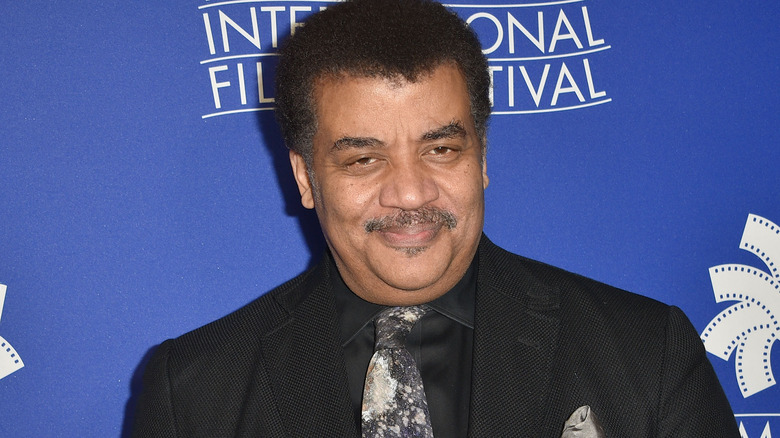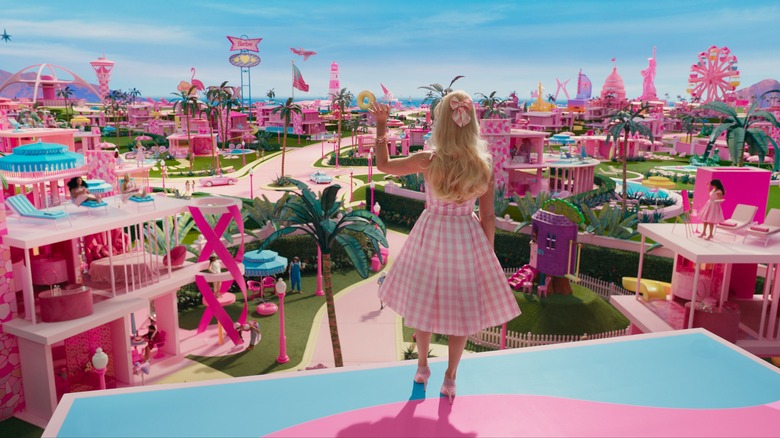Barbie: Neil deGrasse Tyson Revealed Where Barbieland Is & Why She's Important
Come on, Barbie, let's go ... study lunar patterns.
In addition to being an astrophysicist, Neil deGrasse Tyson also fancies himself a film connoisseur. He regularly points out scientific and historical inaccuracies of the latest films on social media. One such tweet sees him clarify how the actual Trinity test depicted in "Oppenheimer" occurred early in the morning instead of at night. But it seems Tyson enjoyed the Barbenheimer phenomenon because he also pontificated on "Barbie."
Greta Gerwig's latest movie didn't have much to say on scientific principles, but Tyson took it upon himself to determine where precisely Barbieland would be located geographically on Earth. Here's his thought process, "In @BarbieTheMovie, the Moon's orientation places Barbie World between 20 & 40 deg North Latitude on Earth. Palm trees further constrain latitude between 20 & 30 deg. The Sun & Moon rose & set over the ocean. If it's in the US, Barbie World lands somewhere in the Florida Keys."
Of course, Barbieland is supposed to occupy a more metaphysical plane than a physical one. And besides, if Barbieland is that close to Florida, that might make Ken (Ryan Gosling) an honorary Florida man, which ... honestly makes sense. But while determining Barbieland's coordinates is meant in good fun, Tyson also discussed his thoughts on what "Barbie" means to people, especially young girls.
Neil deGrasse Tyson examined how toys socialize children to future societal roles
"Barbie" has generated strong opinions online about what it represents in terms of feminism and the role Barbie (the doll) has in the developing minds of girls who play with her. The film has drawn a great deal of backlash from conservative voices who think it's anti-men, even though "Barbie" really goes out of its way to redeem the Kens who brought the patriarchy to Barbieland. Neil deGrasse Tyson took a careful glance at what these toys mean to people growing up, wisely avoiding any political connotations.
In a separate tweet, Tyson uploaded a two-minute video offering some thoughts on Barbie and how the dolls could impact young girls growing up. He mentioned, "You talked about socialization... other dolls were babies. So you're a young girl, and you're trained to care for a baby and feed it and isn't that socialization? You're gonna have to care for little children, and that's gonna be your job. That's your role in society. Barbie was not a homemaker... She might have had a baking dress, but most of them were not." Barbie opened the doors for girls to see themselves in different lights. This could have positive iterations, such as girls realizing they could pursue any number of careers, as well as negative ones, including Barbie herself usually being presented as incredibly thin.
Tyson also brings up how boys would've grown up playing with G.I. Joe action figures. Were toy companies priming young girls to be homemakers pre-Barbie while getting boys ready to fight in wars? It's an intriguing thought, and no matter what one took from "Barbie," it's definitely opened up some necessary discussions.

